(https://doi.org/10.55612/s-5002-062)
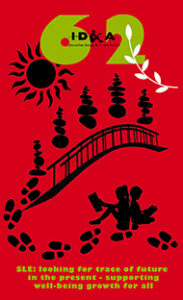
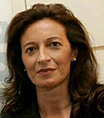
Licia Cianfriglia
School principal. Elected member for the managerial category at the Superior Council of Public Education. Responsible for Partnerships and Institutional Relations at ANP. Member of the Technical-Scientific Committee supporting DGEFID of the Ministry of Education in the process of improving the National Digital School Plan. Member of the Advisory Board of the EdTech Observatory organized by the Politecnico di Milano and MIP Graduate School of Business. Over the years, she has ben Vice President of ANP, FP-CIDA and CIDA. As a designer, coordinator, and trainer, she is involved in the vocational training of managers and teachers on educational policies, technological innovation for teaching, and school organization. She graduated in Mathematics with full honors from “La Sapienza” University of Rome and obtained the 2nd level Master’s degree in MAESTRIA – Education Management: Training Structures, Innovation, Learning, and the specialization in School and Career Counseling at the same University. She got also the Specializations in School Management: Legal, organizational and training skills, and in Methods and Techniques of online training at the University of Florence; and the Master’s degree in E-learning: e-learning object design at the University of Tuscia.

Mihai Dascalu
is a full professor at UPB, responsible for the courses of Object-Oriented Programming, Semantic Web Applications, and Data Mining and Data Warehousing. He was head of the class in 2009 (e.g., GPA 10/10; ranked 1st across specialization and university) at University Politehnica of Bucharest and holds a double Ph.D. with the highest distinctions in Computer Science and Educational Sciences, with his thesis published as a book in Springer, Studies in Computational Intelligence. He has extensive experience in national and international research projects with more than 300 published papers, including 30 articles at top-tier conferences, 100+ papers indexed ISI at renowned international conferences, and 10+ Q1 journal papers.
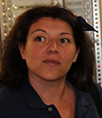
Inès Di Loreto
is Associate Professor in Computer Science at the University of Technology of Troyes. She worked at the Norwegian University of Science and Technology (NTNU) before joining UTT in 2013. She obtained a master’s degree in philosophy in 2002 and a doctorate in computer science in 2010 at the Università degli studi di Milano. In 2019, she obtained her HDR (Habilitation à la direction de recherche) from Paul Sabatier University. Her research in the area of human-computer interaction focuses on the role of the body and the senses in learning through technology-augmented artifacts. Her action research approach nudged her towards the domains of disabilities, cultural heritage, crisis management.
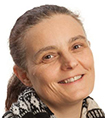
Monica Divitini
is professor of Cooperation Technologies at the Department of Computer Science of the Norwegian University of Science and Technology. Her research interests lie primarily in the areas of cooperation technology and technology enhanced learning, with focus on the development and evaluation of cooperation technologies addressing issues connected to creativity, playfulness, and interaction in learning. She has worked with learning in different domain areas, currently focusing on game-based learning and IT education at different educational levels. She is coordinator of the TESEO Lab initiative and member of the Norwegian Center for Excellence in ICT education.

Fábio Duarte
is the Associate Director, Research & Design, at the MIT Senseable City Lab, where he is also a Principal Research Scientist. Duarte is a Lecturer in DUSP and is affiliated with the Sustainable Urbanization Lab, in the Center for Real Estate. His most recent books are “Urban Play: make-believe, technology, and space (MIT Press, 2021) and “Unplugging the city: the urban phenomenon and its sociotechnical controversies” (Routledge, 2018).
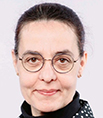
Angélique Ferrandon-Vépierre
is a doctoral student at Troyes University of Technology. She is also a manager in the Education Nationale in the Académie de Reims. She obtained a Master’s degree in physics in 1995 from the Université du Maine in Le Mans (72). The theme of her thesis research is digital school support for anxious school refusers.

Benedicte H. Gangstø
conducted the work as part of her Master of Science at the Department of Computer Science of the Norwegian University of Science and Technology. Her specialization is on Interaction design, gaming and learning technology. She is currently working as a developer at Bekk Consulting, where she assists a team at Nav IT to develop a new case management system for the state benefit “Tiltakspenger”.
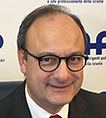
Antonello Giannelli
President of ANP. School Inspector. Formerly School Principal. Responsible of organization at ANP. Trainer and consultant at ANP. Coordinator of teacher training at Lazio’s School of specialization for teacher training. Specialist in operational research and decisional strategy (University of Rome “La Sapienza”). Master in school management (University of Florence). Graduated in physics (University of Bari).

Carlo Giovannella
graduated in Physics, he worked long time in solid state physics as an expert of complex systems. Nowadays can be considered a “Designer for the experience”.
As President of the Association for Smart Learning Ecosystems and Regional Development, he is fostering the development and benchmarking of Smart Learning Ecosystems as drivers of social innovation and regional development, and the dissemination of the design literacy into the schools.
At the University of Tor Vergata he has ben for more than 25 years the chair of the ISIM_garage (Interfaces and Multimodal Interactive Systems), a research lab devoted to design and development of integrated community-based environments for TEL, collaborative work and smart communities, tools and methods for education, analytics, and more.

Åse Håtveit
is a visiting student at the MIT Senseable City Lab from the Norwegian University of Science and Technology, where she is conducting research for her master’s thesis in informatics. Her current research focuses on the challenges associated with the development and adaptation of urban environmental sensing projects for makers, as well as on the potential for engaging communities through the use of open-source, low-cost sensing technologies to better understand their environments.

Claudia Maga
is an undergraduate student at the Faculty of Mathematics of the University of Milano-Bicocca, with a great passion for Science and teaching. She was involved in the Binario 9 ¾ project as a tutor and software developer, taking part both in the design and implementation of didactic units written in Scratch and in their usage with students. She has also been working in the production of multimedia materials for supporting learning at distance during COVID-19 Pandemia. Being interested in arts and crafts, which often come in handy as teaching support, she enjoys helping others to achieve their goals by finding the most suitable method of communication. She is the author of one scientific paper about learning in STEM disciplines context.

Simone Mora
is a Research Scientist at the Massachusetts Institute of Technology (MIT) and an Adjunct Associate Professor at the Norwegian University of Science and Technology (NTNU). He does research on novel sensing technologies and their applications for future cities. He develops methods and tools for rapid design and rapid prototyping of internet-connected sensors and human-computer interfaces. Since 2018 he leads MIT’s City Scanner Research Initiative, which has developed a low-cost environmental sensing platform that is currently used by cities and research institutes worldwide to give data-driven answers society-critical research questions in the fields of environmental science, environmental justice and city planning. He has been a visiting scholar at City London University, and he co-founded a company that developed an ideation toolkit to tackle the UN’s Sustainable Development Goals.
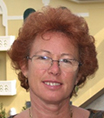
Donatella Persico
is associated researcher at CNR-ITD. Her major research interests include learning design, self-regulated learning, teacher training, and game-based learning. She has been involved in several teacher training programmes as a lecturer in educational technology, is author of educational material and scientific publications of various kinds, including books, educational software, multimedia material and research papers concerning various aspects of educational technology. She is editor of the Italian Journal of Educational Technology and has a long standing experience in the coordination and management of national and international projects.
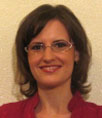
Elvira Popescu
is a Full Professor at the Computers and Information Technology Department, University of Craiova, Romania. Her research interests include technology-enhanced learning, adaptive educational systems, learner modeling, computer-supported collaborative learning, learning analytics, and intelligent and distributed computing. She authored and co-authored over 100 publications, including two books, journal articles, book chapters, and conference papers. In addition, she co-edited six journal special issues, as well as 20 international conference proceedings. She participated in over 15 national and international research projects, three of which as a principal investigator. Prof. Popescu also serves as the Vice Chair for the IEEE Women in Engineering Romania Section Affinity Group and is a board member for the IEEE Technical Committee on Learning Technology and the International Association of Smart Learning Environments. She is also a Distinguished Speaker in IEEE Computer Society Distinguished Visitors Program (2020-2023), and she gave several invited / keynote talks at international conferences. She received several scholarships and awards, including five best paper distinctions. She is actively involved in the research community by serving as associate editor for three journals, member of five other journal editorial boards, organizing a series of international workshops (SPeL 2008–2020), serving as a conference chair, program committee chair and track chair for over 20 conferences.

Francesca Pozzi
is Lead Researcher at CNR-ITD and has got a Ph.D. in “Cultures, Languages and ICT” (University of Genoa). Her main research area is Educational Technology. Specific interests include: Learning design, Collaborative learning, Computer Supported Collaborative Learning (CSCL), teacher training and innovation in schools, ICT in cultural heritage education, Technology Enhanced Learning for healthcare professionals’ training. Pozzi is co-editor of the Italian Journal of Educational Technology. She is member of the Scientific Committees of several conferences and has a long standing experience in the coordination and management of national and international projects.

Fabio Sartori
received the graduate and Ph.D. degrees in computer science from the University of Milano-Bicocca, Milan, Italy, in 2000 and 2005, respectively. He is currently an Associate Professor of programming languages at the Department of Informatics, Systems and Communication, University of Milano-Bicocca. He is the author of more than 70 papers published in international conference proceedings or journals. He has taken care of both methodological and computational aspects in the development of decision support systems, exploiting wearable devices as information sources in the context of his research interests, which mainly include knowledge-based systems and knowledge management. His current research interests include education and teaching methodologies of STEM disciplines and Informatics at secondary schools.

Alexandru Smarandache
is a master student at the Information Systems for e-Business program, Faculty of Automation, Computers and Electronics, University of Craiova, Romania. He obtained his bachelor’s degree from the same university, majoring in Computers and Information Technology. He currently works as a Java Software Engineer and is interested in collaborative learning, gamification and educational platforms.

Barbara Tosi
holds a degree in Economics and Business Studies from the Catholic University of the Sacred Heart in Milan. An expert in Local Development and Europlanning, she has, for many years, carried out fund-raising activities for privates and public administrations, developing and managing, as Project Manager or Local Coordinator, projects financed by private foundations, national calls and EU programmes. Director of a Training Agency (Consorzio Scuola Comunità Impresa – CSCI www.cscinovara.it), she has been working for years in the field of Vocational Training dealing with the organisation and management of courses for the unemployed, unemployable and employed, training and orientation internships, student mobility, elearning and, generally speaking, the design and use of Virtual Reality tools for the formation of work teams. Author of numerous publications in the field of distance learning, she has collaborated on SWOT Analyses and Feasibility Studies conducted as part of territorial development projects. In the field of training and local development, she has participated as a speaker at national and international events.

Remus-Dan Ungureanu
PhD student at the National University of Science and Technology Politehnica Bucharest, specializing in speech and natural language processing. Research focuses on speech recognition systems and their real-world applications.

Alessandro Varallo
has been working in training since 1993, initially in a leading Italian training company and later in the Consorzio Novara Europa Formazione. A member of the CSCI management team since its establishment, he has always dealt with the administrative and reporting aspects of national and EU projects. Responsible for the internationalization area: he is in charge of relations with foreign partners and Italian schools.
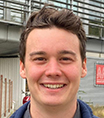
Titus Venverloo
leads the Massachusetts Institute of Technology (MIT) Senseable City Amsterdam, a research collaboration between AMS Institute and the MIT Senseable City Lab focused on leveraging digital technologies for climate-neutral cities. In addition to leading Senseable City Amsterdam, Titus has a research position at TU Delft (CiTG, Transport and Planning), a research fellow appointment within AMS Institute, and is on the board of the foundation Young Urban Engineers.

Yann Verchier
holder of the “Smart Campus Smart Cursus” chair, he holds a doctorate (Ecole Normale Supérieure) and teaches science at the Université de Technologie de Troyes. After working as a training manager for 4 years, he led training-of-trainers initiatives in Africa (Senegal and Cameroon) as part of international projects. Author of several scientific works, he is an associate professor at the University of Sherbrooke (Quebec) and conducts research in the field of educational science and digital learning, publishing on issues of evaluation, active pedagogy, experiential learning and the use of new technologies for training. He is currently involved in setting up a European pedagogy laboratory as part of the EUT+ project.
